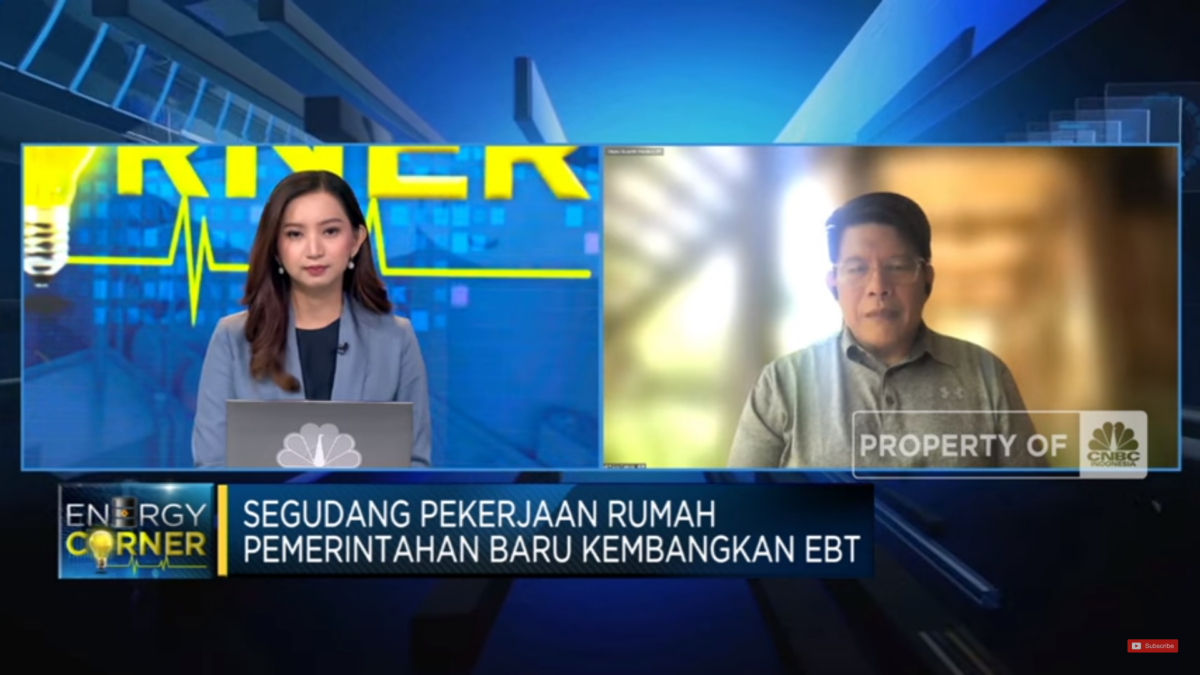Jakarta, 20 February 2024 – Fabby Tumiwa, Executive Director of the Institute for Essential Services Reform (IESR) assesses the steps taken by the National Energy Council (DEN) to adjust the renewable energy mix target in the Draft of Government Regulation on National Energy Policy (RPP KEN) from the original 23 percent to 17-19 percent 2030 is a backward step because it is not in line with the stated goal of reducing emissions and achieving Indonesia’s net-zero emissions target by 2060 or sooner.
Fabby also highlighted the energy transition agenda carried by each pair of presidential candidates in the 2024 election, which includes a number of renewable energy mix targets until 2030 in an interview with the Squawk Box program.
According to him, each candidate has an energy transition agenda, one of which is the desire to pursue the same renewable energy mix target as the current National Energy Policy, ranging from 27-30 percent by 2030. Apart from that, each candidate also has a commitment to limit the operation of coal power plants.
“For candidate number 02, what is clearly visible is the increase in the use of biofuel to replace or reduce fuel subsidies as stated during the campaign,” said Fabby. They (presidential and vice-presidential candidates’ number two) are targeting a biofuel blend percentage of 50 percent by 2029, as well as ethanol utilization of 10-20 percent.
Furthermore, Fabby emphasized that for the electricity sector, the aim of ending coal plant operations early must be accompanied by adding a larger portion of renewable energy. Apart from replacing the electrical power that was initially supplied by coal-fired power plants, renewable energy generation must also meet the projected electricity growth needs in the future. Moreover, Indonesia has the ambition to pursue economic growth of up to, for example, 6-7 percent, so electricity demand is projected to grow even greater.
“Based on IESR’s calculations, to achieve these various targets, the renewable energy mix in 2030 must reach 40 percent, this is somewhat different from the target adjustments made by DEN currently,” explained Fabby.
Fabby added that the new government’s homework related to the energy sector will be to accelerate the development of renewable energy, especially in the electricity and liquid fuel sub-sectors.

